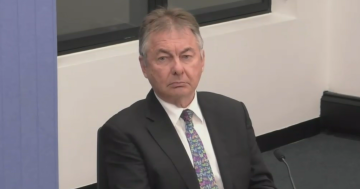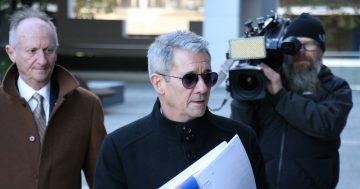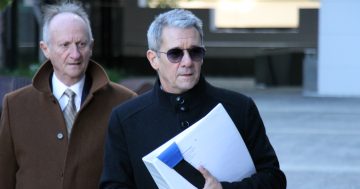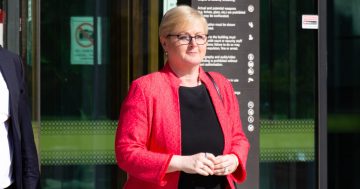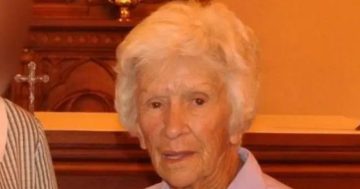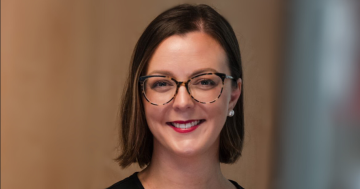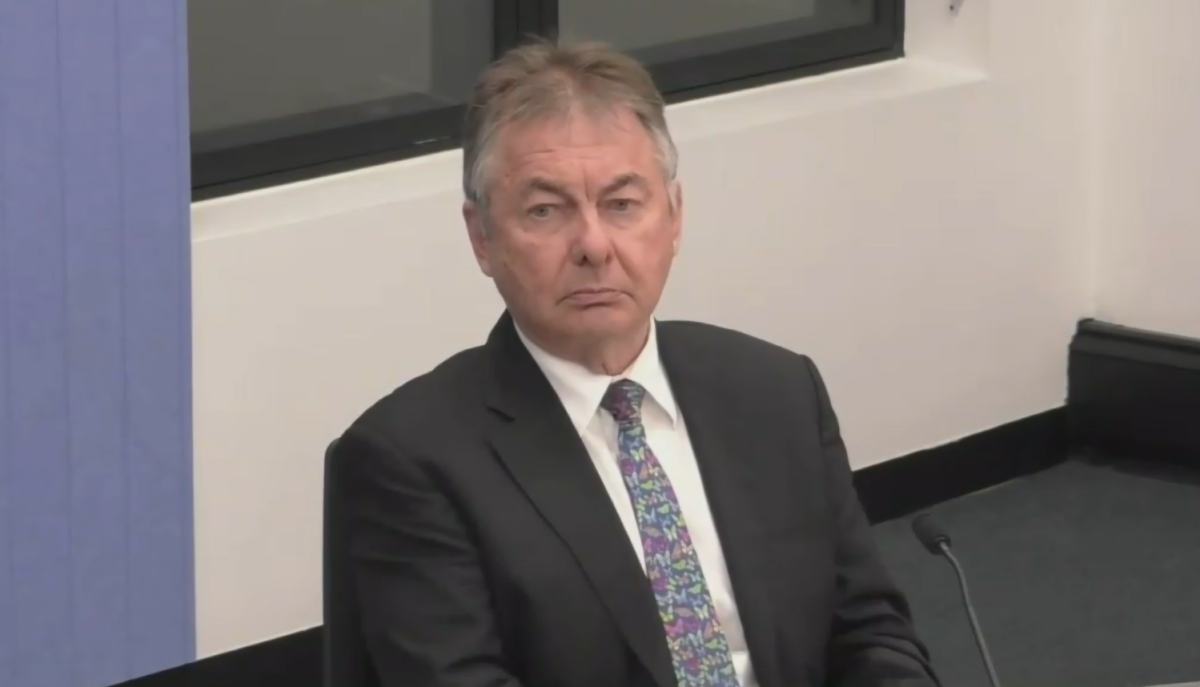
Walter Sofronoff KC was the chair of the Board of Inquiry last year. Photo: Screenshot.
Janet Albrechtsen was the “most persistent” of the journalists who contacted Walter Sofronoff KC during the Board of Inquiry (BOI) and he hadn’t given her any “preferential treatment”, the latter’s barrister said.
Brendan Lim was speaking to the ACT Supreme Court on Wednesday (14 February) when the hearings for Shane Drumgold SC’s legal fight against the Board of Inquiry entered its second day, after his team had spent most of the first looking at the communications between the BOI’s chair Mr Sofronoff and The Australian’s Ms Albrechtsen.
The former ACT Director of Public Prosecutions wants either Mr Sofronoff’s report, which was released after the inquiry into the prosecution of Bruce Lehrmann, or the decisions it made in respect to him to be declared invalid or unlawful.
Mr Lim said his client had engaged with any journalist who approached him during the inquiry and he had said that Ms Albrechtsen was “the most persistent of the journalists”.
“The fact is there was no preferential treatment,” Mr Lim said.
Mr Sofronoff had said his phone calls with Ms Albrechtsen were about identifying the nature of the issues in the inquiry and the timing of when documents would be released.
Mr Lim also said Mr Drumgold’s lawyers could not submit there had been any “surreptitious communications” because, due to the process of discovery in which the call records between the pair had been obtained, Acting Justice Stephen Kaye knew exactly what those communications were.
The court also heard Mr Sofronoff say he wasn’t concerned about whether a journalist would pursue a particular view; his concern was accuracy.
The barrister for the ACT Government, Kate Eastman SC, said Mr Drumgold’s lawyers had made a “strong point” about the “secret nature” of the communications between Mr Sofronoff and Ms Albrechtsen.
However, she argued that while his lawyers were relying on the communications to prove their claims that her bias had influenced the chair, these claims overlooked the way the inquiry was conducted, the inquiry’s terms of reference – including inquiring if Mr Drumgold had breached his duties – and the numerous opportunities the ex-top prosecutor had been given to explain his conduct.
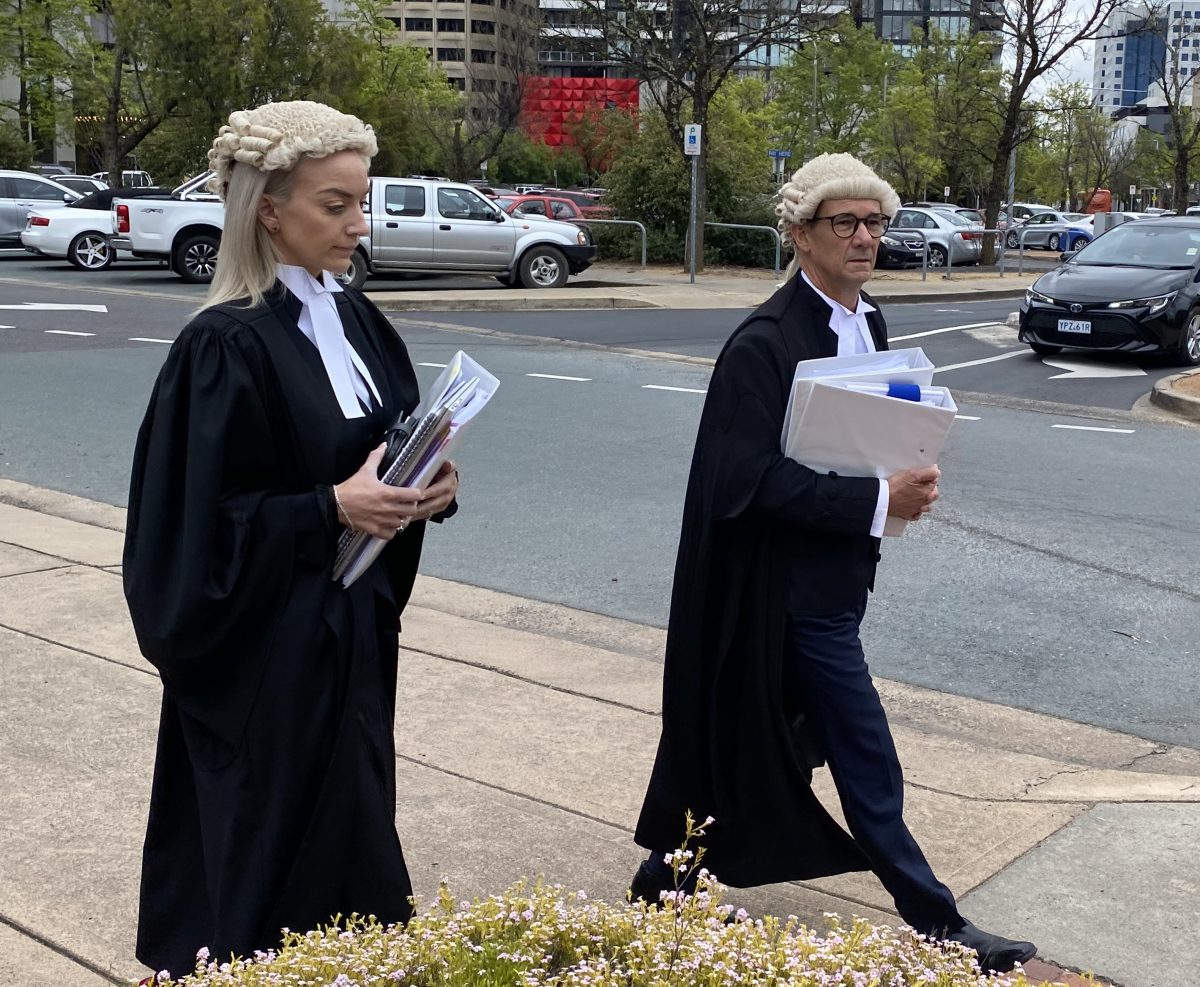
Shane Drumgold SC (right) arrives at court during the Bruce Lehrmann trial. Photo: Claire Fenwicke.
Ms Eastman said Mr Drumgold’s lawyers had made much of Mr Sofronoff “volunteering” his opinion to Ms Albrechtsen when he texted her on 6 May 2023 about statements from two witnesses, Mr Drumgold’s junior and solicitor.
“What a thing to do to two young professionals under your mentorship,” Mr Sofronoff wrote.
But Ms Eastman said by 6 May, the BOI had done a significant amount of work, including a private interview with Mr Drumgold and had received statements from both him and others, so by that date, Mr Sofronoff “should have been forming some type of preliminary view” about parts of the inquiry.
She also said there was no evidence Mr Sofronoff had sought out Ms Albrechtsen- on Tuesday, the court heard it was she who first texted him on 22 February 2023 – or asked her to publish anything to generate interest in the inquiry. She said there was also no evidence to suggest he’d read her articles.
When raising an allegation made by Mr Drumgold’s lawyer, Dan O’Gorman SC, Ms Eastman said there was no evidence to demonstrate Mr Sofronoff had “poisoned his mind” against the ex-top prosecutor.
She said Mr Drumgold had given evidence to the inquiry over five days, during which he was examined on a range of issues and given the opportunity to explain himself.
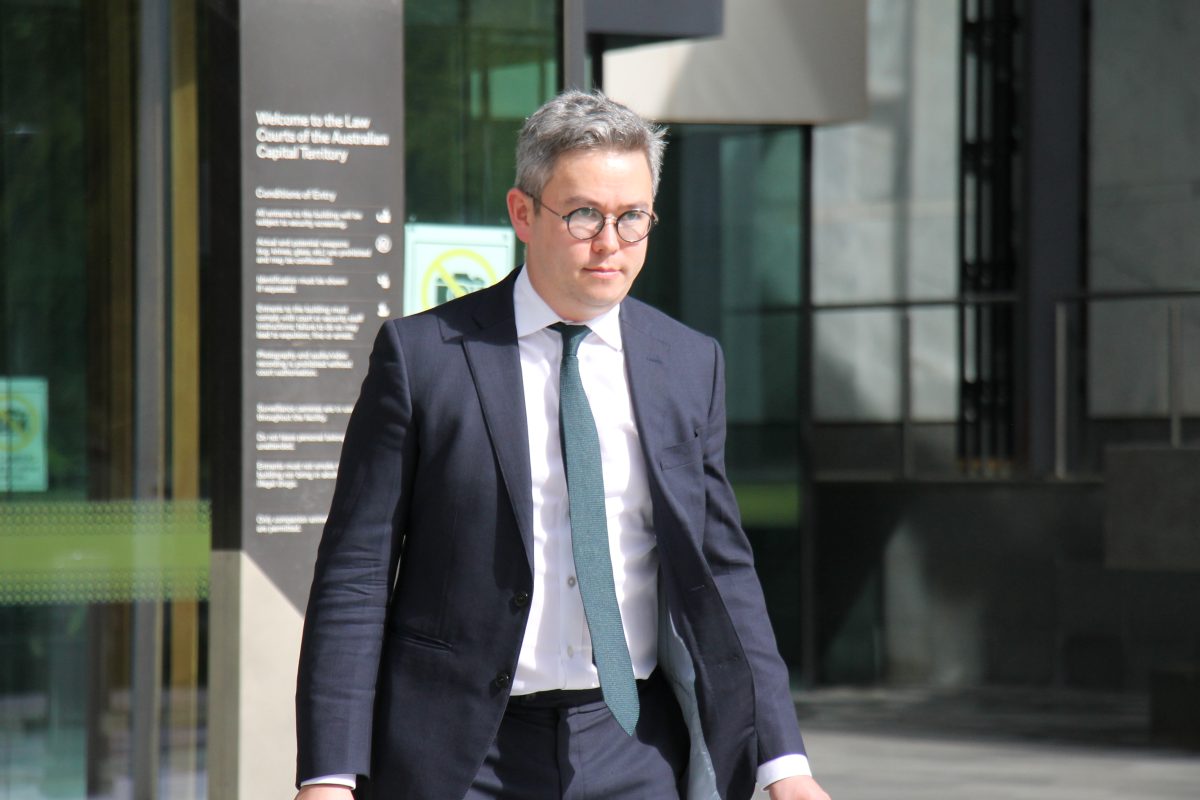
Barrister Brendan Lim represented Walter Sofronoff KC in the Supreme Court. Photo: Albert McKnight.
Also, she said the inquiry had issued two notices of potential adverse findings to Mr Drumgold in June and July 2023, giving him the opportunity to respond.
For instance, he was allowed to make submissions on why the inquiry might find he was not fit and proper to remain on the roll of barristers, an issue on which no findings were ultimately made.
Ms Eastman didn’t think anyone would dispute that the BOI’s findings contained “very harsh criticisms” of Mr Drumgold, but she also said not all the findings were adverse to him.
Earlier in the morning, Mr O’Gorman had finished his submissions to Acting Justice Kaye, during which he raised Mr Sofronoff’s finding that Mr Drumgold had “preyed” on a junior lawyer’s inexperience to make a misleading affidavit.
The barrister argued his client had not been given an opportunity to respond to this finding.
The hearings are expected to run until Thursday (15 February).
Mr Drumgold resigned as DPP after findings in the BOI report made his position untenable. The findings included that he directed “a junior lawyer in his office to make a misleading affidavit”, “preyed on the junior lawyer’s inexperience”, “egregiously abused his authority and betrayed the trust of his young staff member”, “deliberately advanced a false claim of legal professional privilege” and “knowingly lied to the chief justice”.
Mr Lehrmann pleaded not guilty and no findings have been made against him.
Original Article published by Albert McKnight on Riotact.


